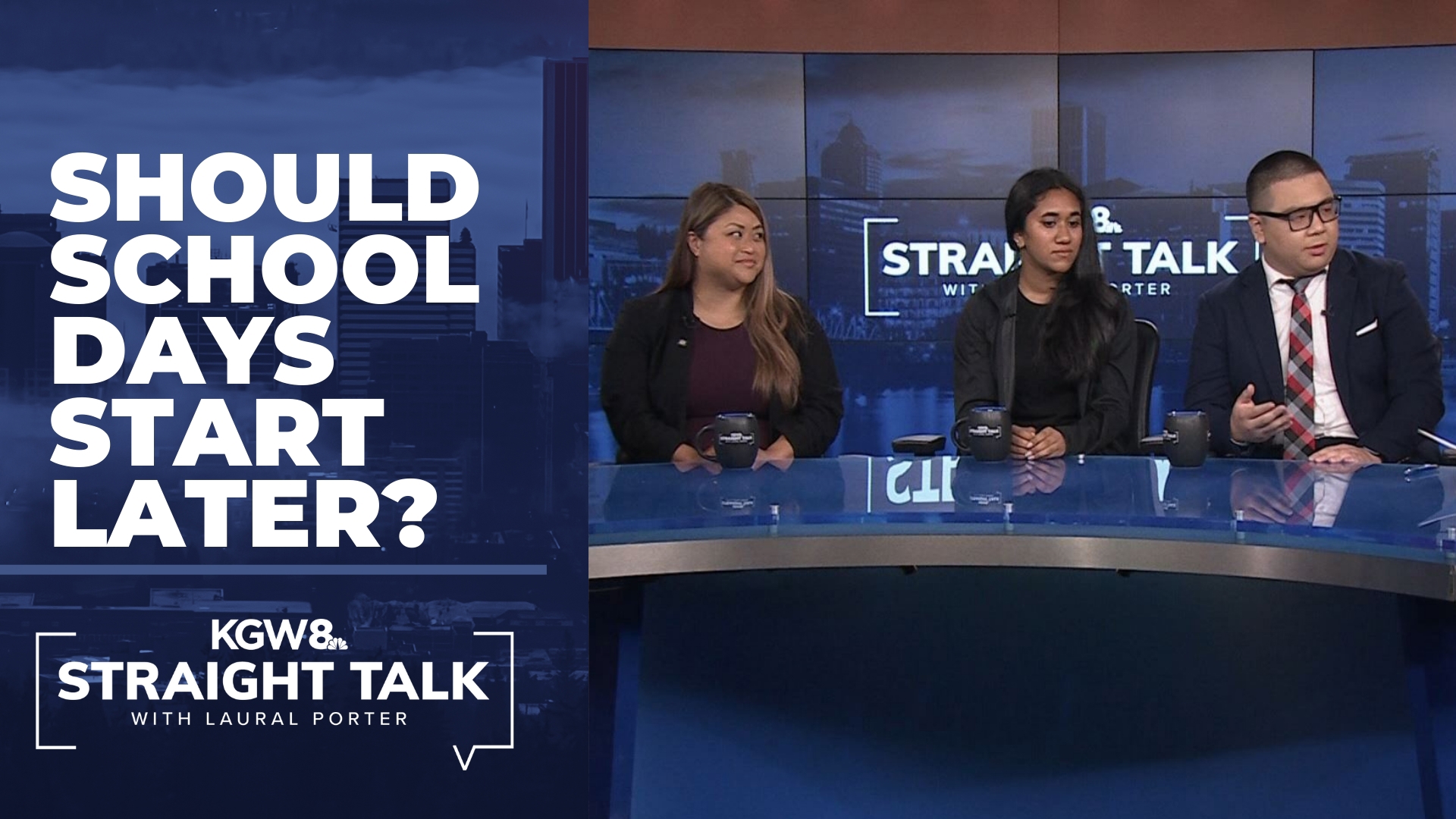PORTLAND, Ore. — The start of the new school year is just a week or two away, which means students across Oregon are likely dreading having to start setting early alarm clocks once again. School start times vary across the state, but a local group of students has begun pushing for a conversation about pushing those start times later into the morning — no earlier than 8:30 a.m.
Studies have shown that teens would benefit from more sleep, and graduation rates would likely improve. But in some districts, parents, teachers and district officials push back on the idea, citing family scheduling and transportation challenges, as well as concerns about cost.
The renewed discussion also comes as Oregon, like many other states across the country, is grappling with a sharp rise in student absenteeism in the wake of the COVID-19 pandemic.
Students Alvin Chan and Aditi Subramanium joined OSU pediatrician Dr. Ben Hoffman and Oregon State Rep. Hoa Nguyen as panelists on this week's episode of "Straight Talk" to discuss possible solutions to the problem, including the idea of later start times.
Subramanium said her own school has an 8:30 a.m. start time and she's benefited from it, but she's seen other students struggle with earlier starts, including her own older sister when she was in high school.
"Skipping breakfast, rushing out the door, being groggy, not super alert," she said. "First period classes, for a lot of my peers, I've heard are quite a struggle. And even driving on the roads as a groggy teenager, certainly that's a big worry."
Chan and Subramanium are both members of the Multnomah Youth Commission, and Chan pointed to student focus groups that the commission organized about a decade ago to investigate the issue of absenteeism.
"We came up with a list of over 30 policy recommendations, and the top one that we found was most effective was the issue of start times, and how do we get it to where students are able to get up in the morning not feeling terrible for school?" he said.
One point that Hoffman stressed: it's not just about shifting everyone's schedule by an hour or two. Kids need nine to 12 hours of sleep per night, and teens need eight to 10, he said, and studies have shown that students who start school later don't tend to go to bed later to balance it out — they end up getting more sleep overall, and the results are highly positive.
"Pretty much anything you can imagine, from academic performance to absenteeism to decreased risk for car crashes to increased sports performance — pretty much any measure that you can think of gets better with delayed school start times for high schoolers," he said.
Nguyen's background is in education, and for the past decade, she's focused on the issue of chronic absenteeism, speaking to hundreds of parents of students. The pandemic made things worse, she said, but the rising absenteeism trend was visible even back in 2018, and Oregon now has the fourth-highest rate of absenteeism in the country.
School start times could certainly be a factor, she said, but there are a wide range of other contributing causes including poverty, homelessness and youth mental health challenges.
"Straight Talk" airs Saturday and Sunday at 6:30 p.m., and Monday at 7 p.m. "Straight Talk" is also available as a podcast.

